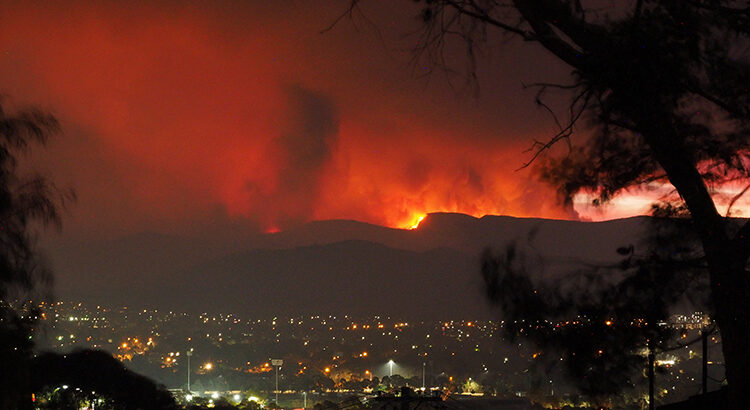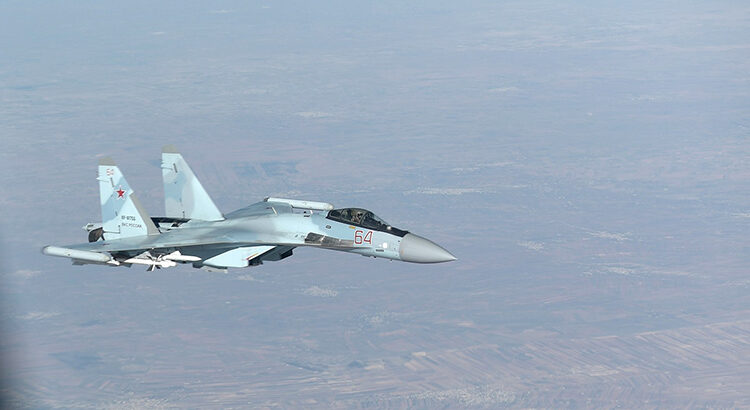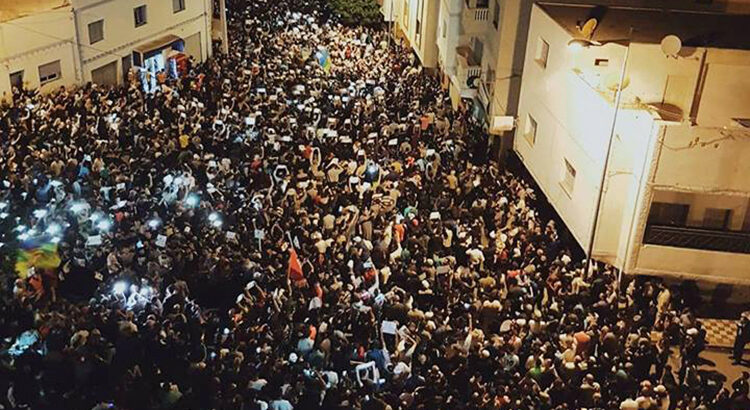Contrary to popular opinion, extremist communication is not simply based on hatred and calls for violence. While beheading videos or livestreamed shootings may generate attention, displays of violence alone are an insufficient basis for an extremist ideology and claims of legitimacy. Utopian narratives – visions for the perfect society – are an indispensable element of propaganda efforts. Without detailing what one is fighting for, an essential part would be missing from the web of extremist ideological communication. While the last years have seen an increase in narrative campaigns designed to delegitimize extremist ideologies and provide alternative worldviews, pro-democracy narratives struggle with responding to the utopian visions propagated by extremist actors.
Geht es ohne „Zwang“? Mit Verbindlichkeit in der Klimapolitik Frieden sichern
Klimasicherheitsrisiken können nur durch Anpassung und Emissionsminderung überwunden werden. Damit diese Ziele eingehalten werden, muss auf die Verbindlichkeit der Maßnahmen zwischen Staaten gedrungen werden. Dazu sollte die Bundesregierung im Rahmen der UN-Klimakonferenzen Review-Prozesse stärken und da, wo ein kooperativer Ansatz nicht ausreicht, Sanktionen unterstützen.
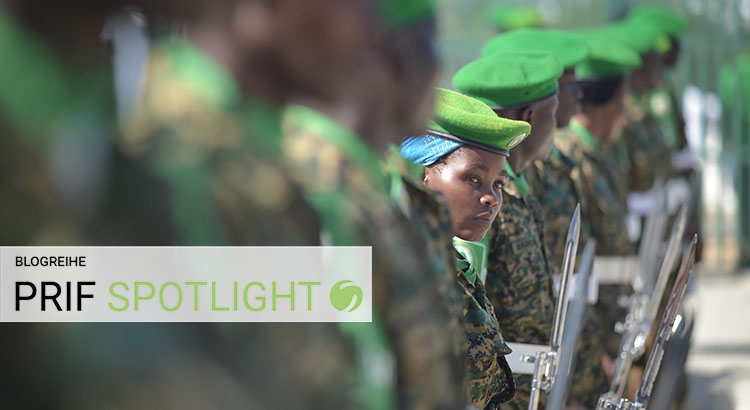
Sicherheitssektorreform und Gender. Von der Strategie zur ressortgemeinsamen und wertebasierten Umsetzung
Die Gleichberechtigung der Geschlechter ist ein wichtiges Prinzip der im Jahr 2019 veröffentlichten Strategie der Bundesregierung zur Sicherheitssektorreform (SSR). Um Gleichberechtigung im Rahmen der Unterstützung von SSR in Partnerländern zu berücksichtigen und zu fördern, müssen die beteiligten Ministerien nicht nur konkrete Ziele und Maßnahmen vereinbaren, über die im Rahmen des neuen Nationalen Aktionsplans 1325 zu Frauen, Frieden, Sicherheit berichtet werden sollte. Sie müssen sich auch Konflikten in Partnerländern stellen. Kontextsensibilität darf nicht bedeuten, Geschlechtergerechtigkeit außen vor zu lassen.
Counter-Terrorism for Peace – Syria between the Russian-Led Coercive Peace and the United States’ Withdrawal
After the fifth round of the UN-led Constitutional Committee for Syria in January 2021, the UN Special Envoy for Syria, Geir Pederson, eventually announced that they failed to draft a new charter for the Syrian constitution. Further UN-led negotiations were postponed after the Russian-led meeting in Sochi which took place on February 16 and 17. This blog presents the latest developments of the parallel processes of peace talks for Syria, arguing that the United States’ uncertainty in the region is leading to more success of the Russian-led Astana format. This comes not only at the cost of UN-led engagement in Syria but also risks the lives of the population in Idlib as regional counter-terrorism plans are a central issue in the current peace talks.
Ten Years After the Arab Spring: How Stable is Morocco Really?
Ten years after the onset of the February 20 Movement, its variant of the “Arab Spring”, Morocco is still perceived as a bedrock of stability in the region. However, while the king successfully contained the 2011 uprising, under the surface the rift between state and society is still widening. As public trust continues to erode, Moroccans increasingly turn their attention to the streets in order to air their grievances. Drawing parallels to Algeria, which saw its dictator unexpectedly fall in 2019, this article questions the paradigm of Moroccan stability. The next wave of protests may not be so distant after all.
Evaluation im Kooperationskontext. Chancen zur Gestaltung der Zusammenarbeit von Sicherheitsbehörden und Zivilgesellschaft
Ende 2020 verabschiedete der Kabinettausschuss zur Bekämpfung von Rechtsextremismus und Rassismus einen umfangreichen Maßnahmenkatalog, in dem auch eine Stärkung der Zusammenarbeit zwischen Sicherheitsbehörden und Zivilgesellschaft empfohlen wird. Obwohl bereits einige erfolgreiche Ansätze existieren, scheint es an dieser zentralen Schnittstelle der Extremismusprävention weiterhin Entwicklungsbedarf zu geben. Innovative Evaluationsvorhaben können hier einen wichtigen Beitrag leisten, indem sie dabei helfen, bestehende Initiativen zu stärken, mögliche Hürden zu überwinden und gleichzeitig den nötigen Raum zur klaren Abgrenzung zwischen den Akteursgruppen zu bieten.

Bäuer*innenproteste in Indien und anderswo: Der Aufstand des Landes
Indien erlebt derzeit die größten Proteste seiner Geschichte: Millionen Bäuer*innen sind mit ihren Traktoren in die indische Hauptstadt Delhi gezogen. Angesichts einer geplanten Gesetzesinitiative zur Liberalisierung des Agrarmarktes fürchten Millionen um ihre Existenz. Längst haben die Proteste auch auf Themen von Demokratie, Repräsentation und Kultur übergegriffen. Doch nicht nur in Indien sind Agrarpolitik, Lieferketten, und ländliche Produktionsbedingungen zu hoch politisierten Themen geworden.
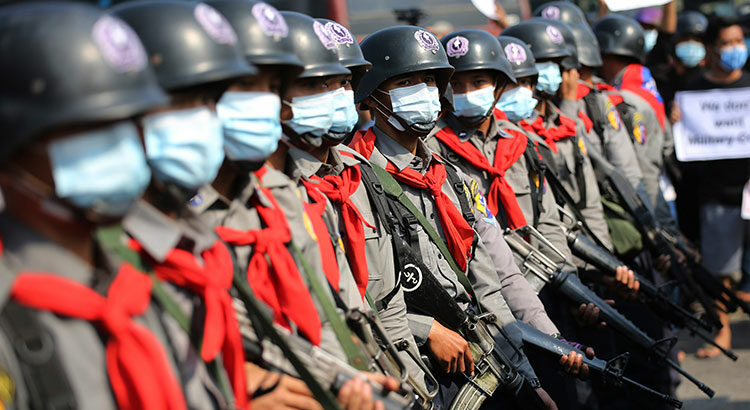
Interpreting Myanmar’s 2021 „Veto“ Coup d’etat
Military “Veto” Coups have been prominent in countries where armed forces have played leading roles in society. In Southeast Asia, militaries have been prominent in Myanmar and Thailand, and the two countries have experienced their fair share of coups. The latest putsch occurred on February 1, 2021 in Myanmar. With Myanmar’s military having had a long and close relationship with Thailand’s armed forces, and both countries’ militaries prone to staging coups, one wonders to what extent Myanmar’s 2021 putsch can be explained in the context of the history of coups in mainland Southeast Asia. Does Myanmar follow the Thai model?
Biden und Nordkorea – Der schwierige Weg zur nuklearen Abrüstung
In den Jahren 2018 und 2019 weckten drei bilaterale Treffen zwischen dem ehemaligen US-Präsidenten Donald Trump und Nordkoreas Machthaber Kim Jong- verhaltene Hoffnungen auf eine baldige Regelung des nordkoreanischen Nuklearkonflikts. Bis auf eine Beschränkung amerikanisch-südkoreanischer Großmanöver und den nordkoreanischen Verzicht auf Tests von Nuklearsprengkörpern und weitreichende Raketen gab es jedoch seither keine weiteren substanziellen Fortschritte. Mit der neuen US-Regierung unter Präsident Joe Biden verändern sich nun die Vorzeichen: angekündigt ist ein stärker multilaterales und Diplomatie-geleitetes Vorgehen, während gleichzeitig härtere Verhandlungen zu erwarten sind. Dabei wird auch das künftige Management des Macht- und Handelskonfliktes zwischen den USA und China sowie mit Russland eine wichtige Rolle spielen.
Mehr als Prävention. Politische Bildung und Extremismusprävention: Schnittmengen und Herausforderungen
In der öffentlichen Diskussion extremistischer Übergriffe und Terroranschläge werden oft hohe Erwartungen an die politische Bildung als ein Instrument der Prävention formuliert. Dabei stellt sich jedoch die Frage, was politische Bildung leisten kann und soll. Politische Bildung bietet mehr als eine Handreichung zum Umgang mit aktuellen Herausforderungen durch politische Extremismen. Ihre Kernaufgabe ist es, die aktive Teilhabe aller Menschen am politischen und gesellschaftlichen Leben zu unterstützen. Dabei leistet sie auch einen Beitrag zur Prävention. Politische Bildung und Prävention bilden keine Einheit, erzeugen aber gemeinsam einen Mehrwert für eine sich vor menschen- und demokratiefeindlichen Extremismen schützende Gesellschaft.

